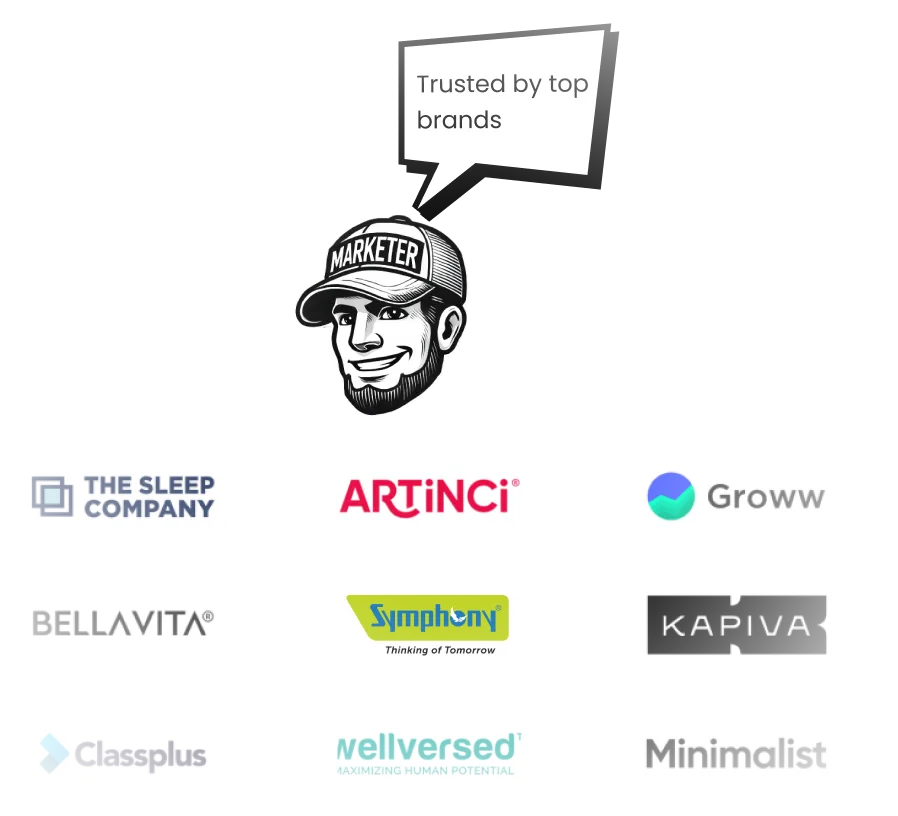Getting Buy-ins from Decision Makers is Important for CRO Processes: Jeremy Epperson

Getting Buy-ins from Decision Makers is Important for CRO Processes: Jeremy Epperson
Highlights of the talk:
- Adoption of CRO and getting the buy-ins are crucial
- CRO as a team sport and co-ordinated process
- Prioritizing and testing hypotheses
- Getting started in 90s, overcoming roadblocks
Tell us about your journey in marketing and CRO?
The journey started with my first startup in 2007. I had built a website from scratch. I was the entire marketing and sales team all by myself. I had to learn everything real time with no experience. CRO specialization came with my agency. We experimented and figured out how to increase conversions. What I realized is you can’t optimize a website unless you understand customers. So, I set out to seek the ways in which one can understand customers.
We explored and added more research methods around customers- what do they want and what is it that is lacking in conversions. All these we researched and understood.
Will showing personalized and relevant data help in converting?
Yes and we have conducted a lot of experiments and have a lot of data that backs this conclusion. What’s interesting is when we ask our clients why do your customers buy, I rarely get a solid answer that’s backed by data. Mostly those are guesses or vague answers. It’s a prevalent problem that exists.
What a lot of people miss out on is knowing the reason behind why a particular test, let’s say an A/B test failed. People don't give importance to understanding and validating things like behavior triggers, motivation etc. It’s important to test with the aim to solve the real conversion blocks and increase ROI.
Unfortunately, the adoption of CRO, even after 14 years, has been significantly slower than what I had expected when I started. There aren’t in-house dedicated CRO professionals on most teams. It’s just not like a typical role. It’s seen as a blend of many roles. There are 14 skills like qualitative to quantitative research, design, copy, QA , executive leadership, marketing research etc. to name a few that exist for one to run a high performing CRO program. So it requires a cross functional team including designs and research. A single person cannot carry that out. You need to build a process.
One of the important factors is executive leadership or executive buy-in which is something that people neglect. You need to get buy-ins to conduct customer research and other experiments that involve budgets.
There are a lot of silos and roadblocks in operation that hinder people from conducting CRO processes. These need to be taken care of from the business side.
How does your optimization for the website start?
We focus on jump starting the CRO program with a ROI positive strategy. We have a dual track approach with CRO which - we start testing from literally day one, we get the test live, we need to work through the process of technical implementation. Simultaneously, we run our customer research process.
What that looks like for each business is different since each business has different existing data. So, if you have tons of quantitative data, attribution data, segmentation data, insights like how people are abandoning the funnel, but you may not have the qualitative figures. So, we conduct research for the first 90 day window.
Secondly, we want to build momentum and get people excited about research and how that can actually contribute to ROI.
Another interesting thing- we have an 85-115 days window to show to some kind of buy-in about how people get frustrated and abandon. That’s how we get started and propose to try CRO.
According to you, what are the various hurdles on the website and what stops them from converting?
We have a lot of data around the barriers on the website. We create and conduct user surveys that help us get the answers to the drop offs from the shopping funnel to understand what prevented them from completing the purchase.
Universally, there are 3-7 primary reasons that prevent someone from converting on a website but that’s different for various businesses even for those in the same industry. However, the cool thing is to get these customer insights.
I get asked for my educated guesses on why certain conversions are not happening on a website but honestly I cannot tell unless I know what exactly is happening on the site.
How do you come with testing ideas?
It’s the hardest thing about CRO. Taking a data point and transforming it into a useful hypothesis or hypotheses is the magic part that many people struggle with. As a rule, If we have a data point that is not tied to a hypothesis, we never conduct tests around it.
We conduct a thorough analysis of how the user is behaving on the site and determine our tests. In other words, we need the highest quality hypothesis to test. You can develop 5-6 hypotheses. From each we analyze how the designs and copy variations can be tested. Depending on how you structure that. You can check how that works. Then we get into prioritization among them.
How do you drive quality traffic to a particular website and convert them?
We create a hub of insights that we get from things like customer journey mapping and extrapolate them across channels like emails, social media etc. Most people think myopically and consider only the website which is not effective.
Our whole concept is what we can do to digital marketers to test copies and designs and drive quality traffic.
What metrics you measure for post clicks performance?
We consider both macro and micro conversions. Micro conversions are submitting a form or even completing a purchase while micro conversions are the steps that add to those big events. As a marketer, there is a mix of steps for each part of the funnel. For each part of the funnel, there are completely different metrics.
Do you recommend any tools for CROs and marketers? Any favorites?
We are sort of tool agnostic. All the companies we work are well equipped with tools, however, we believe that the success with tools depends on the skills the team members possess.
What kind of resources and content do you consume?
If I was a beginner I’d find top 4-5 people on LinkedIn who are sharing everything they do in CRO. I read and trust the Nielson Norman group’s content. I don't personally read CRO blogs any longer. I suggest reading true experts on LinkedIn. You can advance your learning curve by skipping directly to their learning as they have already tried out a few things. Follow true experts and read all that they share.
Finally, what’s the one advice you would give to budding marketers?
I get asked this question very often. However, CRO is so complex that it’s difficult to pick one piece of advice. I think it’s important and the hardest thing is to get started on day one. I have written a book on this subject- getting started in the first 90 days. Find out more.
We know the road blocks and we have all those documented. It’s just about having the level of awareness so that you can skip many of the mistakes.






.svg)

